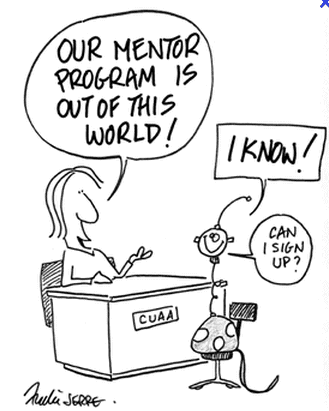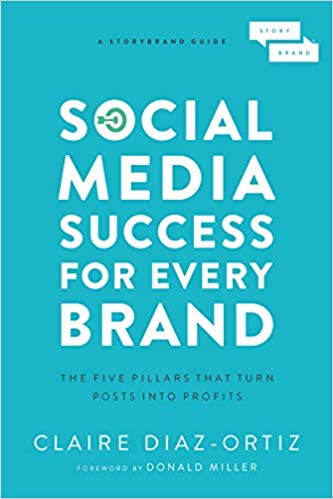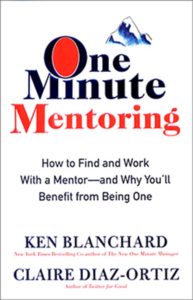A Guest Post By Pamela Redmond Satran. Pamela Redmond Satran is the New York Times bestselling author of 18 books, including the novel The Possibility of You and the forthcoming humor book Rabid. She is a co-creator of the million-visitor website Nameberry and a columnist for Glamour.
I loved Claire’s recent post on How to Get a Mentor — even if I found it, well….not totally accurate. For instance, there actually are lots of mentor wannabes wandering around looking for people to mentor, even if they don’t come flat out and offer their services in so many words. Rather, they – we – hint. Make ourselves available. Say, “If you ever want some advice, here’s my card.”
The stunning thing is how few people actually take us up on it. Or perhaps do take us up on it, but then conduct the relationship in a completely unproductive way.
Here, the mentor’s view on how to find a mentor and get the most out of the arrangement.
Recognize one when you see one – If an older, more experienced person in your field gives you their contact information or invites you out to lunch or suggests you call if you want help with a work issue, take them up on it. Don’t be shy. Don’t be afraid that they don’t really mean it. If they didn’t mean it, they definitely, definitely wouldn’t offer. Once the offer’s been made, it’s up to you to get the relationship rolling.
It’s not personal – A mentor is not your best friend, your confidante, your lover, or your mommy. You don’t need to ask about their kids or their weekend but also don’t waste their time talking about your dating issues or apartment hunt. Focus on work and expect them to do the same.
Get good at taking – One of the central reasons mentor-mentee relationships don’t work out is that the mentee is too insecure to be on the receiving end of the relationship, to let herself be ignorant and inexperienced and confused and to let the mentor do all the giving of advice and information. Some mentees are uncomfortable with the relationship because it feels too much like parent and child, or because it feels lopsided. But you don’t have to do what your mentor tells you to do, you just have to elicit as much guidance as possible and then follow your own counsel. And rather than rushing to turn the tables and equalize the relationship, your job is to sit back and let your mentor do the talking and advising.
One important thing the mentor gets out of the relationship is feeling wise and strong and experienced, so you shouldn’t deprive them of that. Ask questions, show your ignorance and confusion in a way you shouldn’t with your boss or someone you’re actually doing business with. The better you get at taking, the more you’ll get from your mentor.
Stay in touch. Really – Building a coffee meeting into an ongoing mentor-mentee arrangement demands follow-up on your part. Your mentor wants to know how all that advice they offered worked out. Did you call the contact they recommended? Tell them. Did you get the raise? Let them know. And if their advice led to a new, unexpected roadblock, talk that out too. While it may feel selfish asking for even more advice after your mentor has given so much, your mentor will feel deprived or cut off if you don’t let them know what happened next and give them an opportunity to stay involved.
And while it isn’t your role to ask your mentor about his career issues or her new marriage (see #2), fair play demands that you recognize there are two of you in the relationship. A little sucking up would not be out of order. Tweet up their company, buy (and read) the book they just published, and if the opportunity for turnaround presents itself, ask what you can do for them.
Say thank you – Your mentor is probably genuinely happy to treat you to lunch at her favorite restaurant or invite you to the industry gathering she chairs. Your job is to thank her – sometimes with an email but more nicely with a hand-written note and, in the case of a really big favor like introducing you to your new employer or helping you negotiate a big contract, flowers or a thoughtful gift.
It’s great if your mentor helps you get to the next level, but best if you establish a relationship you can continue to call on throughout your career.
So, are you ready to go and get a mentor now? Or are you already mentoring someone well?





Good stuff; I like this post. You’re right in saying that mentors don’t have to be your best friend, but it doesn’t hurt if your relationship becomes more than cordial. To me, a true mentor is someone who will still tell you what you need to know and will listen to you no matter how close you might get, if it happens.
I’ve been that mentor for most of my friends; they’ve nicknamed me The Guru, which is nice. Now I need to work on those people I don’t know in getting them to pay for it. 😉
Thanks for the reminder that it’s okay to be on the taking side of things, Pam. I’ve definitely been insecure with my mentors and felt that need to try to equalize the relationship in order to not feel guilty about benefiting so much from their expertise and advice while not giving in return. Good to have the reminder that this is perfectly ok!
i want you to be my mentor. i just looked at your websites and read your article (which i received years ago attributed to someone else) “30 Things Every Woman Should Have and Should Know by the Time She’s 30”. i’m 43 and a few years behind on some of those. so who better to help me than the one who made the list? the one who’s written the book? the one who’s blog post is titled “How to Get Me to Be Your Mentor” ?
i have a blog. a partially written screenplay. a couple of boxes full of random writings. and several book ideas that just won’t go away.
but i need help. and advice. and direction.
sounds like the perfect job for a mentor.
will you be mine?
Thanks for the comments, everyone. Colleen, I’m flattered that you would ask but for me, at least, it would be really tough to start a mentoring relationship from scratch with someone I’ve never met whose work I’m not familiar with (obviously, I should have started this piece a few steps earlier than I did!). Honestly, it sounds as if you’ve got some distance to go before you could truly benefit from my help. Take some writing classes. (I still do, all the time.) Go to writing conferences. Work on turning some of those great ideas and random writings into actual articles and books. The bulk of the work you need to do at this stage is on your own and no mentor can really help you with that beyond pushing you out on the stage.
We pay for education and physical fitness coaches as well as dance coaches so why not a mentor. These days people want everything for free and on the other hand people with credentials are struggling because they can’t find a job. There is nothing wrong with paying someone to help you do better and feel better about yourself just like we pay to go to the gym and pay docs to alter our bodies. Parents are the only ones required to work for kids without a pay check. A doctor wont help you for free. Stop hating on paid mentors.